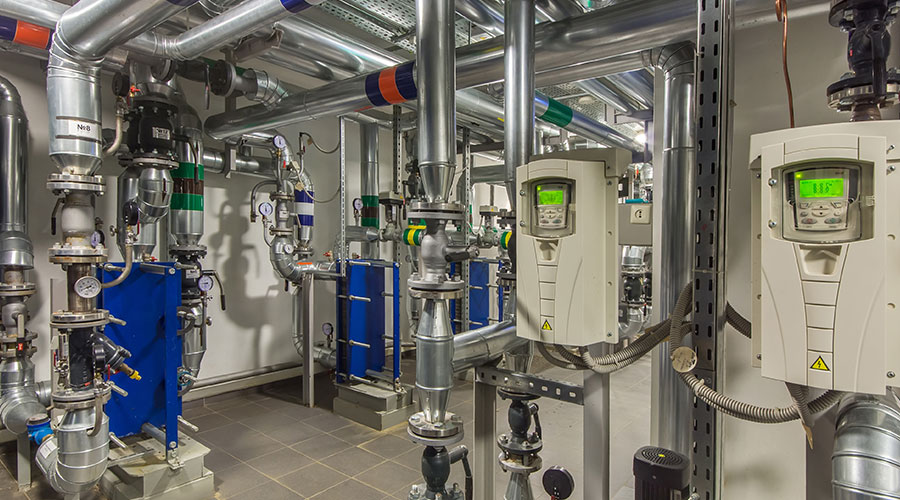Boilers are integral components of all types of institutional and commercial facilities, including healthcare facilities. They provide essential heat and hot water for operations, but their reliability and performance depend greatly on proper inspection, testing and maintenance.
For healthcare facilities managers and front-line technicians, understanding the importance of boiler protection is essential for ensuring the highest overall performance and longevity of these essential assets.
By discussing industry standards, manufacturer recommendations and the pros and cons of boiler maintenance, managers can be certain they are equipping technicians with essential information for effectively managing their boiler systems.
Achieving goals
Comprehensive and effective boiler maintenance is essential for meeting several important goals:
Safety. Disregarded boilers pose sizable safety risks, including the possibility of explosions, leaks and carbon monoxide poisoning. Regular maintenance facilitates becoming aware of and rectifying capacity risks, ensuring secure operating surroundings for facility personnel.
Efficiency. Well-maintained boilers operate at top efficiency, maximizing electricity use and holding down operational costs. Routine inspections, cleansing and tuning optimize overall performance, minimizing energy consumption and emissions.
Reliability. Unplanned downtime due to boiler problems can disrupt operations, leading to disrupted schedules and operations implications. Maintenance schedules that encompass preventive measures mitigate the threat of unexpected breakdowns, enhancing device reliability and operational continuity.
Regulatory compliance. Adhering to industry standards and requirements is imperative to ensure facility compliance. Regular boiler maintenance ensures adherence to safety codes and environmental policies, averting potential fines and prison results.
Ensuring compliance
The American Society of Mechanical Engineers (ASME) Boiler and Pressure Vessel Code provides comprehensive guidelines for the design, construction, operation and maintenance of boilers and pressure vessels. Compliance with ASME requirements is crucial for ensuring the protection and reliability of boiler structures. Among the key factors protected by ASME requirements are these.
Regular testing and inspection performed by qualified personnel are required to evaluate a boiler’s circumstances and identify defects or deficiencies. Testing approaches, inclusive of hydrostatic testing, verify the integrity of boiler components and stress vessels.
Related: HVAC Innovations to Help Achieve Net Zero and Decarbonization Goals
Endorsed maintenance procedures — including cleaning, lubrication and element replacement — are defined by ASME standards. These techniques aim to preserve boiler performance, prevent corrosion and extend the system’s performance life.
Detailed recordkeeping of boiler inspections, maintenance practices and repairs should be maintained to demonstrate compliance with ASME requirements. Documentation facilitates traceability and accountability, supporting regulatory audits and inspections.
Managers also should take into consideration specific recommendations from boiler manufacturers to ensure the best overall performance and sturdiness. Common producer hints include:
Implementing a complete water treatment program is important for preventing scale formation, corrosion, and fouling within boiler structures. Treatment methods also can consist of chemical components, filtration and reverse osmosis to maintain water purity and decrease mineral deposits.
Boiler manufacturers specify acceptable feed water fine parameters, together with pH levels, dissolved oxygen content and conductivity. Monitoring and controlling feedwater help prevent boiler damage and optimize heat-transfer efficiency.
Proper blowdown procedures as recommended by manufacturers facilitate the removal of dissolved solids and impurities from the boiler water. Regular blowdown maintenance prevents scale buildup and maintains water chemistry within peak ranges.
Benefits and challenges
Comprehensive and effective boiler maintenance is an important process for healthcare facilities looking to maximize performance, increase energy efficiency and minimize emissions. But the process has its challenges along with its benefits. Among the benefits are these:
Cost savings. Proactive boiler inspection, testing and maintenance prolongs equipment lifespan and minimizes repair fees, resulting in tremendous long-term savings for facility owners.
Enhanced safety. Regular inspections and renovations improve boiler safety, lowering the risk of injuries, accidents and liability issues related to equipment problems.
Operational efficiency. Well-maintained boilers perform at the highest efficiency, ensuring steady performance and minimizing downtime, thereby optimizing the operations of healthcare facilities.
Among the challenges are these:
Initial investment. Implementing a comprehensive boiler maintenance program might require upfront funding for personnel training, systems and resources, which can be perceived as an economic barrier for a few companies.
Disruption to operations. Scheduled maintenance activities, such as shutdowns for inspections or upkeep, also might temporarily disrupt facility operations, impacting operations and patient treatment.
Compliance burden. Maintaining compliance with industry requirements and regulations involves administrative efforts, documentation and periodic audits, which might be resource-intensive for managers already facing staffing shortages.
Boiler maintenance is a critical issue for healthcare facilities managers, ensuring the protection, reliability and performance of boiler structures. By adhering to industry requirements, imposing manufacturer guidelines and weighing the pros and cons of boiler care, managers and their staffs can effectively maintain their boiler systems and optimize overall operational performance. Investing in proactive preservation is not only the most effective way to mitigate risks and enhance protection. It also yields lengthy-term cost savings and operational advantages.
Chris Duranceau, C.E.M., CCP, is an engineering manager for FST Technical Service.

 What 'Light' Daily Cleaning of Patient Rooms Misses
What 'Light' Daily Cleaning of Patient Rooms Misses Sprinkler Compliance: Navigating Code Mandates, Renovation Triggers and Patient Safety
Sprinkler Compliance: Navigating Code Mandates, Renovation Triggers and Patient Safety MUSC Board of Trustees Approves $1.1B South Carolina Cancer Hospital
MUSC Board of Trustees Approves $1.1B South Carolina Cancer Hospital Study Outlines Hand Hygiene Guidelines for EVS Staff
Study Outlines Hand Hygiene Guidelines for EVS Staff McCarthy Completes $65M Sharp Rees-Stealy Kearny Mesa MOB Modernization
McCarthy Completes $65M Sharp Rees-Stealy Kearny Mesa MOB Modernization